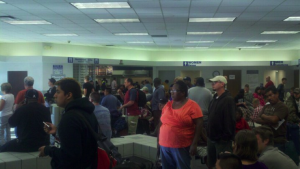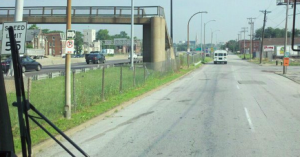The woman sitting next to me talked about her story, how she has a black eye from when her son and one of his friends broke into her house last week to beat her up because they were drunk and he was mad at her for abandoning him. It struck me how nonchalant about this she was “I did it, to have a life” she said and then went on to tell about how happy she is that he’s in jail now. She’s riding the bus to visit her father who she hasn’t seen in 15 years because he is dieing.
I expected when I was in Junction City and first realized that this would be a deeply cross-cultural experience, that it would help me to appreciate and empathize with the lower class people all around me. Alter all, despite the fancy clothes and Yankee upbringing I’m pretty underclass myself. I don’t have a car, I’m technically homeless, and I beg for a living.
 In actuality though so far it’s done more to make me appreciate the rich Christians I know. There’s a sense I get sometimes that a lot of people are way to focused on success and getting ahead, as if that’s what matters in life, and it has often seemed idolatrous to me. Sometimes it probably is authentically idolatrous, but today I’m also learning that it’s pretty efficient!
In actuality though so far it’s done more to make me appreciate the rich Christians I know. There’s a sense I get sometimes that a lot of people are way to focused on success and getting ahead, as if that’s what matters in life, and it has often seemed idolatrous to me. Sometimes it probably is authentically idolatrous, but today I’m also learning that it’s pretty efficient!
Generational poverty is a massive, systemic, social justice issue. If you’re poor, the chances are your kids are going to be poor, and so are their kids. And with that generational poverty comes hopelessness, a sense of detachment from your own destiny that causes you to feel like stuff just happens to you independent of you. As a result we see much higher rates of crime, domestic abuse, child abuse, obesity and alcoholism.
So if you’re not poor. It’s actually a very good thing for the world if you continue to not be poor, and make sure you’re kid’s aren’t poor. Cycles are hard to break and we don’t want to start another one.

